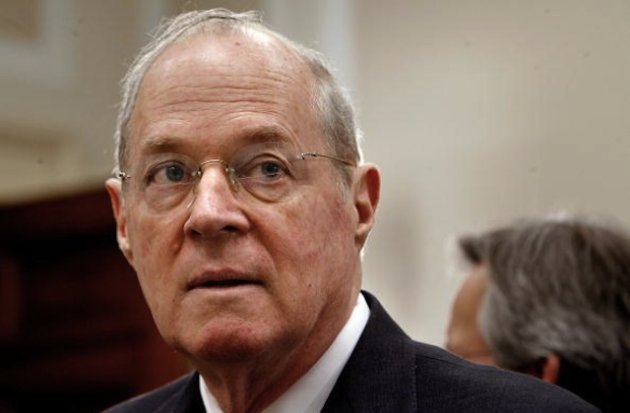By Ellen Freilich
NEW YORK (Reuters) - Major stock markets recovered, with the benchmark S&P 500 stock index traded above its record closing high, and the euro edged off a four-month low on Thursday, as banks in Cyprus reopened to relative calm following the island's controversial bailout.
Stocks rose on Wall Street, setting the stage for a record close. The record closing high on the S&P is 1,565.15, set on October 9, 2007.
There was little sign of the mass panic some feared would occur as banks reopened in Cyprus following a forced closure lasting nearly two weeks. Banks opened with tight capital controls in place to keep depositors from withdrawing all their money.
Investors "breathed a sigh of relief that the world didn't end when Cyprus reopened its banks," said Patrick Chovanec, chief strategist at Silvercrest Asset Management Group in New York, which has $11.5 billion in assets under management.
The euro rebounded from a recent four-month low against the dollar as month- and quarter-end flows had investors covering bets against the euro. But analysts saw the move as tenuous amid concern the Cyprus crisis and political concerns in Italy could encourage anxious investors to sell euro zone assets and seek the safety of the U.S. dollar.
"The concern is we are five years into the euro zone crisis and still lurching from crisis to crisis," Chovanec said. "These economies need to grow their way out of debt and the question is where will the growth come from?"
Cyprus's 10 billion euro rescue deal with its European partners at the weekend is the first euro zone bailout to impose losses on bank depositors and has raised the prospect of savers withdrawing money from banks.
The decision to include senior debt holders and large depositors in the Cyprus bailout could have a "lasting effect" on the way investors perceive weaker euro area banks, said Barclays analysts Rajiv Setia and Laurent Fransolet in a research note.
European Central Bank data showed that some customers began to take money out of their accounts in February on the possibility that depositors would take a haircut in a bailout deal. But the calm as bank employees returned to work helped settle early market jitters.
The euro, which has dropped around 2.0 percent over the last couple of weeks, rose above $1.28 on Thursday, up from a four-month low against the U.S. dollar <.dxy> and a one-month low against the yen
Uncertainty has been amplified by an unexpected rise in German unemployment in March that was reported on Thursday, the lack of a government in Italy following inconclusive elections and typical end-of-quarter caution before the Easter holiday. But Germany's unemployment rise was countered by stronger retail sales and a surprise rebound in Italian business confidence.
European stock markets shrugged off early nerves though as the calm in Cyprus was reported. With benchmark stock indexes in London, Frankfurt and Paris all higher, the FTSEurofirst 300 <.fteu3> rose 0.6 percent.
U.S. Treasuries and German government bonds - assets that investors turn to for safety - slipped.
Benchmark 10-year Treasury notes last traded down 2/32 in price to yield 1.858 percent, up 0.8 basis point from Wednesday's close. The Treasury's $29 billion sale of seven-year Treasury notes got a fairly weak reception.
Treasuries remained weak after the U.S. government raised its reading on U.S. economic growth in the fourth quarter of 2012, while reporting a bigger-than-expected rise in weekly jobless claims in the latest week.
Gold slipped below $1,600 an ounce on Thursday, as banks reopened in Cyprus without panic, sapping demand for low-risk assets.
Gold hit a one-month high of $1,616.36 last week on concerns the $10 billion euro rescue deal for Cyprus, which will leave big depositors and private bondholders with huge losses, could become a template for future bank bailouts in the euro zone.
Gold was down 0.4 percent at $1,598.41 an ounce by 1617 GMT. Spot prices were still set for a one percent gain in March, their first monthly rise in six months. U.S. gold futures dropped 0.67 percent to $1,595.40 an ounce.
U.S. crude futures hovered above $96 a barrel. NYMEX crude for May delivery was up 2 cents at $96.60 a barrel by 1620 GMT.
London Brent crude for May delivery was down 6 cents at $109.09 after finishing 33 cents higher at $109.69 a barrel the previous session.
(Additional reporting by Richard Leong, Angela Moon and Julie Haviv in New York; Marc Jones and Clara Denina in London; Editing by Clive McKeef and Andre Grenon)
Source: http://news.yahoo.com/asian-shares-fall-euro-faint-euro-zone-worries-050535658--finance.html
Marcus Lattimore news 12 world series Natina Reed giants Sandy Hurricane flight tracker





 A woman joins thousands of people protesting against the austerity measures of the Portuguese government in Lisbon on March 15.
A woman joins thousands of people protesting against the austerity measures of the Portuguese government in Lisbon on March 15.
 By Katherine Dewey -
By Katherine Dewey -
